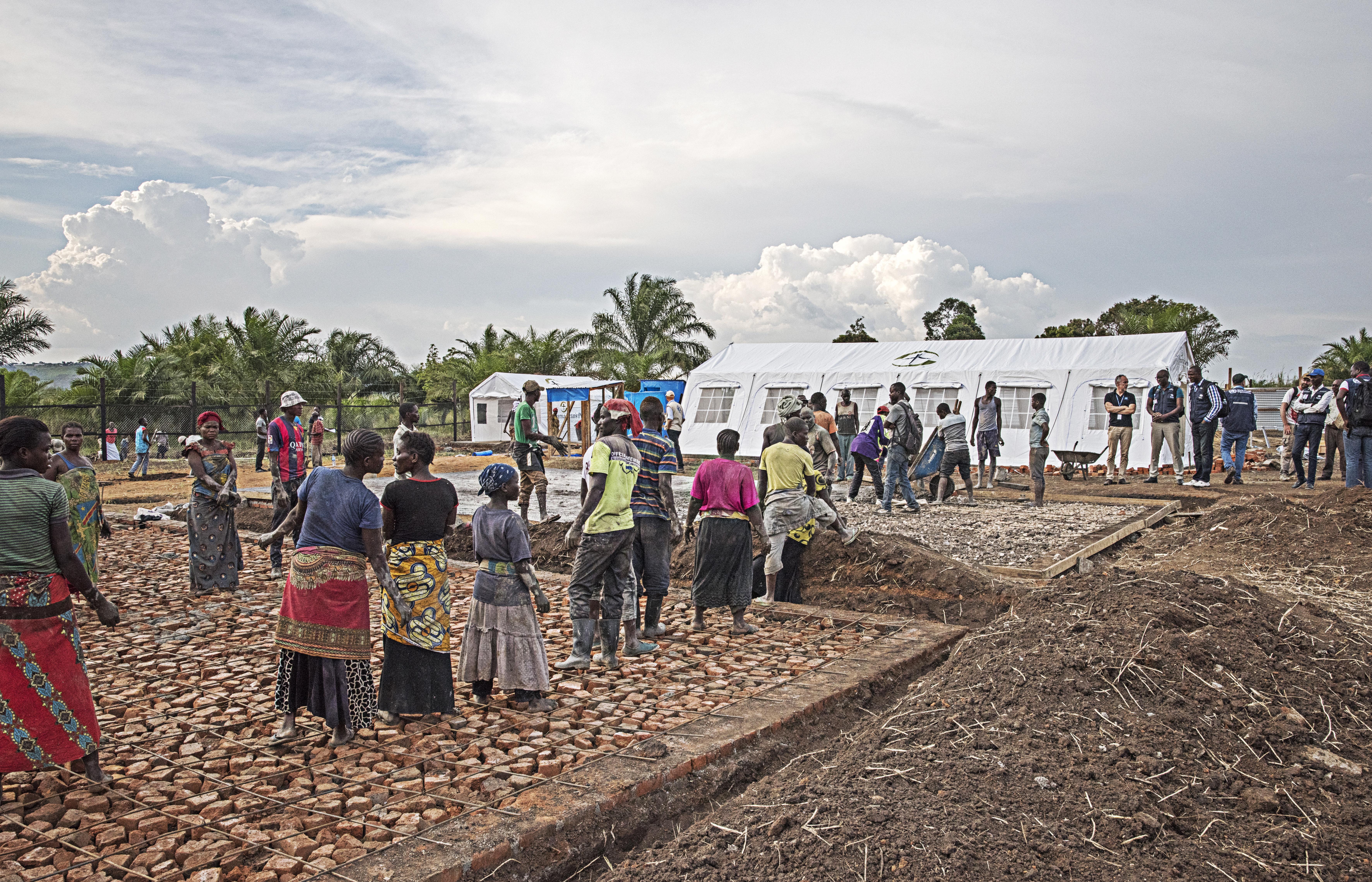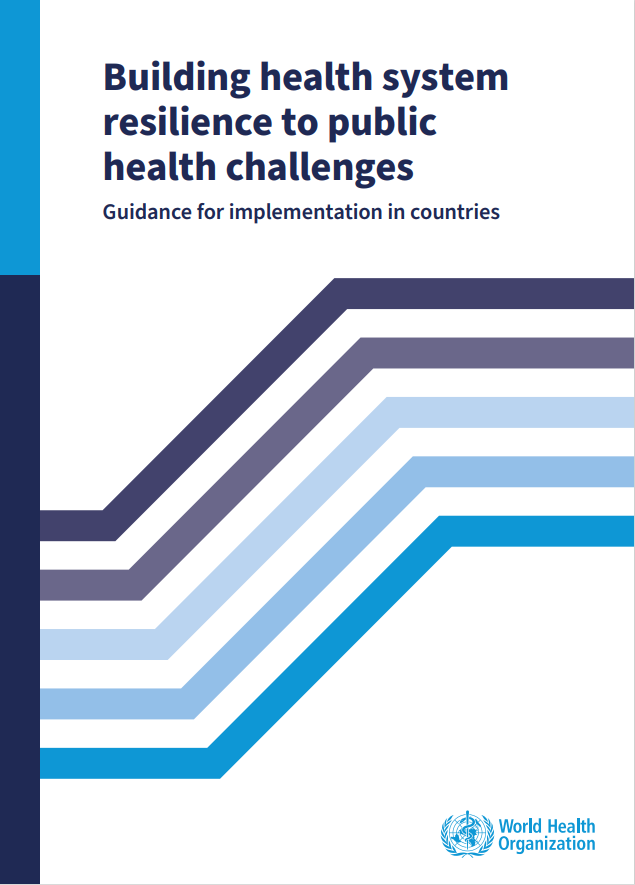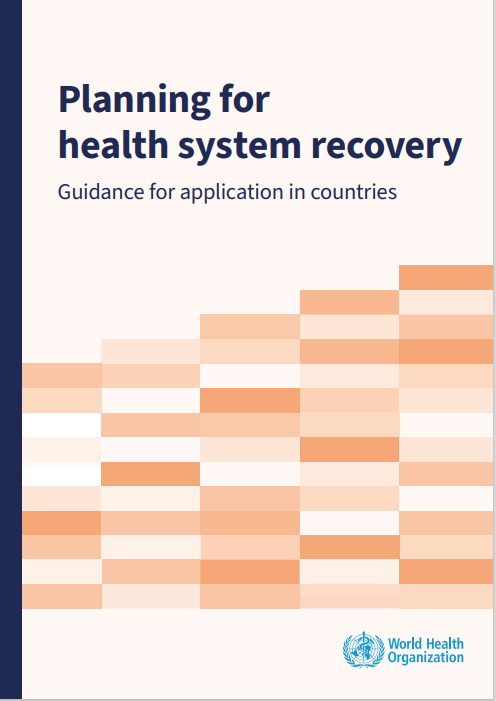In 2022, the World Health Organization (WHO) introduced an online course aimed at strengthening health systems resilience in the face of public health challenges. The course – available through OpenWHO – addresses both acute shocks, such as infectious disease outbreaks and environmental disasters, and chronic stressors like non-communicable diseases and antimicrobial resistance.
Course overview
As demonstrated by the COVID-19 pandemic, health systems worldwide are under constant pressure from a range of public health threats, both acute and chronic. These challenges can severely impact the delivery of essential health services, leading to setbacks in achieving universal health coverage (UHC) and health security goals. WHO emphasizes the need for a renewed focus on building resilience by addressing critical vulnerabilities within health systems – before, during, and after a shock event. This course targets decision-makers in public health policy and health service managers at national, subnational, and community levels. It promotes an integrated approach and actions to enhance health systems resilience across policymaking, planning, service delivery, and monitoring and evaluation.
Course structure and certification
The course, which takes approximately five hours to complete, is divided into four modules:
- Introduction to health systems resilience: Covers the definition, importance, and key attributes of health systems resilience.
- Building health system resilience before shock events: Focuses on governance, intersectoral coordination, and continuity planning.
- Health systems resilience during shock events: Discusses maintaining essential health services and integrating resilience into incident management systems.
- Health systems recovery and building resilience: Outlines steps for recovery and the importance of post-event evaluations.
Each module has short learning sessions with exercises, case scenarios, discussion points and quizzes. Participants who score at least 80% will receive a Record of Achievement certificate, while those who complete 80% of the course material will earn a Confirmation of Participation certificate. Additionally, a digital Open Badge is available for those who achieve a Record of Achievement. Since the offline course materials were adapted for virtual learning and published on OpenWHO in 2022, there have been 6870 enrollments - a testament to the growing need for WHO’s support in this area.
This dedicated training package is part of WHO’s programme of work on health systems resilience and essential public health functions which is supported by the UHC Partnership as well as by other partners including the Korea International Cooperation Agency (KOICA), the United States Agency for International Development (USAID), the Public Health Agency of Canada (PHAC), and the Foreign, Commonwealth and Development Office (FCDO) of the United Kingdom.
Learning outcomes
By the end of the course, participants will be able to:
• Incorporate resilience attributes into health policies and plans.
• Apply integrated approaches to building health systems resilience.
• Advocate for the implementation of key resilience requirements.
For more information and to enroll in the course, visit the course webpage.
About OpenWHO
OpenWHO, launched in 2017 by the Learning and Capacity Development Unit in the WHO Health Emergencies Programme, is a free open-access online learning platform covering a wide a variety of public health topics. It offers self-paced, multilingual courses based on WHO’s guidance and designed for frontline responders, health workers, policymakers, and anyone interested in public health. The platform provides low-bandwidth, adaptable, and translatable resources. It also offers CPD-accredited courses for ongoing professional development.
For more information, visit the publications, newsletters, and FAQ section of the website. Join OpenWHO today to access high-quality learning programs and make a difference in public health.
About the UHC Partnership
The UHC Partnership is one of the core components of the WHO Special Programme on Primary Health Care. It was created by WHO and its development partners in 2011 to bridge the gap between global commitments on UHC and country implementation, by providing the technical expertise needed to reinforce the leadership of the ministries of health in building equitable, resilient and effective health systems based on primary health care. Today, more than 145 health policy advisers are in the field working with WHO offices, national authorities and partners to foster policy dialogue and support countries in a wide range of areas including strategic planning, health governance, harmonization and alignment, health financing, health workforce, medicines and medical products, vaccines, gender, equity, human rights, mental health, noncommunicable diseases, among others.
The UHC Partnership operates in over 125 countries, representing over 3 billion people. It is supported and funded by Belgium, Canada, the European Union, France, Germany, Ireland, Luxembourg, Japan, the United Kingdom of Great Britain and Northern Ireland, and WHO.


